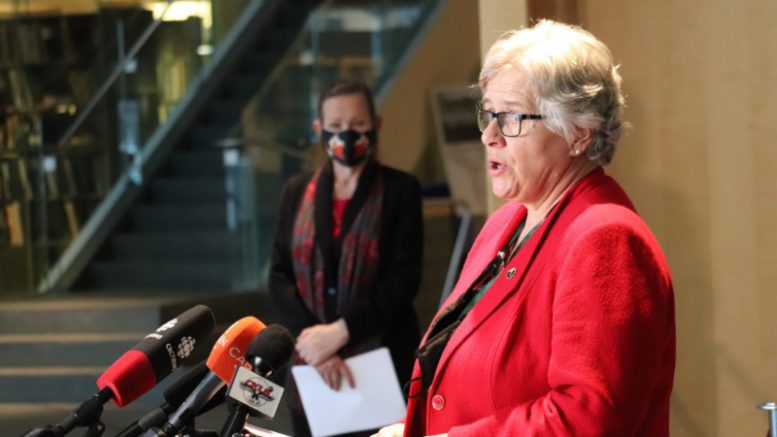The NWT will receive an additional $7 million annually for health care for the next 10 years.
The money comes as part of a new agreement between all provinces and territories, and the federal government.
While Premier Caroline Cochrane welcomed the money, she also said it is not enough to close the gap between the high cost of health care in the North and funding it receives from the federal government.
Overall, the agreement includes $46.2 billion in new money from the federal government, split in many different areas.
Among others:
- An immediate $2 billion “top-up” to the Canada Health Transfer (CHT)
- 5 per cent increase to the CHT annually for the next five years
- $25 billion for bilateral agreements with each province and territory that will last 10 years (This is where the NWT is getting the $7 million mentioned above)
- $1.7 billion over five years for wage increases for health care workers (The NWT is not getting this money)
- At least $10 million annually to each territory for its Territorial Health Investment Fund for the next five years.
Overall, the federal government’s offer is far from what the premiers were asking. Some reports put the premiers’ demands at an additional $28 billion annually to the CHT.
Cochrane said premiers have been waiting two years to meet with Justin Trudeau to discuss increasing health care funding.
“There were concerns raised across the table with the lack of money, lack of support that we were feeling,” she said. “We didn’t want to take the risk of leaving that for another two and a half years for this much money. So this is a first step.”
She added premiers would be writing a letter to the prime minister outlining further concerns. In the territory, that’s mainly the high cost of delivering services. Cochrane said the cost of health care for an NWT resident is about four times the national average.
The bilateral agreements are meant to address four specific health care areas: family health services, reducing backlogs, improving mental health and addictions services, and modernizing the health care system.
The NWT will need to create action plans and outline deliverable outcomes to receive the federal funding.
Julie Green, minister of Health and Social Services, said those plans still need to be negotiated with federal counterparts. But some of the areas in which the territory is looking to invest are: increasing the number of primary health care locations, expanding home and community care for aging residents, taking in more students to the family medicine residency program, and offering better aftercare for residents returning from addictions treatment.
“We have lots of ideas, probably more ideas than there is money,” said Green.
Some provinces, especially Ontario and Alberta, have started contracting more private facilities to provide medical services. Green acknowledged that the territory relied on some private contracts, such as for testing and diagnostics, but that there are no current plan to expand the role of private health care in the NWT.





